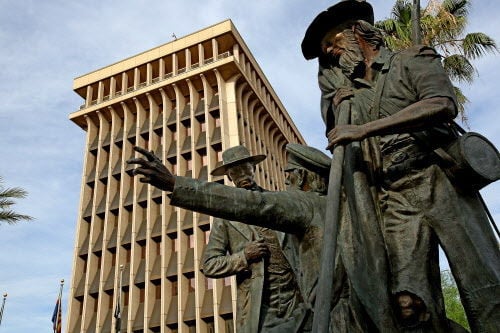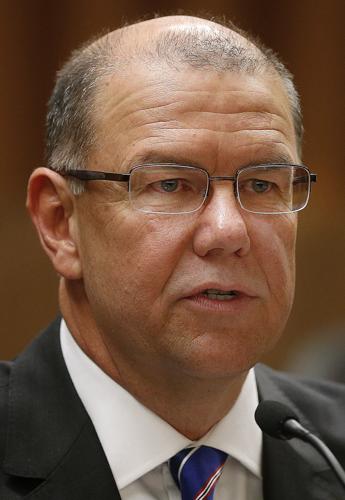This is how the city of Tucson is set up to tackle an aging and crumbling infrastructure: Fix it when it breaks.
With $1.2 billion in identified capital projects on hold, city leaders are tasked with keeping things running while trying to find a way to pay for its massive needs.
The recent mechanical failure of the 38-year-old air conditioner inside the Armory Park Center illustrates how major expenses are handled.
The city scrambled for an emergency fix so that more than 100 senior citizens would not be forced to skip meals. The estimated cost of the repair was nearly $80,000.
Possible long-term solutions were contemplated this week at a budget retreat for the Tucson City Council. Options discussed for coming up with the kind of money the city needs to take on $1.2 billion in projects would raise taxes.
Despite the looming bill, City Manager Mike Ortega began the retreat by trying to reassure the council that the city is still in relatively good financial shape.
“The sky is not falling,” Ortega told the council.
Ortega stressed at the meeting that no solution would address all the needs on the $1.2 billion list, noting the city’s ability to tax cannot meet all the demands.
City officials opted to delay some capital improvements during the recession, which has added to the backlog of projects.
A half-cent sales tax was mentioned by several council members as a possible solution. The city estimates it could generate $50 million a year.
Councilman Paul Cunningham said he was open to allowing the proposed sales tax to be open-ended, not ending the tax after a five-year period as Ortega has suggested. Tax revenues, he said, could help meet a lot of the city’s needs in a single decade.
Other council members said they would be open to considering a half-cent sales tax for planning purposes, but it is unlikely a tax would go to the voters sooner than next year.
Mayor Jonathan Rothschild said that while the council has an obligation to discuss the outstanding needs in the community, voters will ultimately decide whether they want to pay for it.
Voters would also need to amend the city charter to approve a half-cent sales tax.
Another option, asking voters to approve a $100 million general obligation bond, would not require amending the charter.
The retreat this week was the first step in discussing the magnitude of the city’s needs. Ortega is expected to revisit the issue in September during a council meeting.






